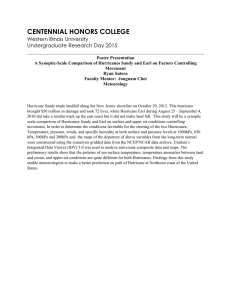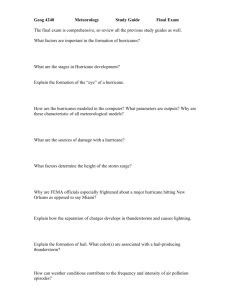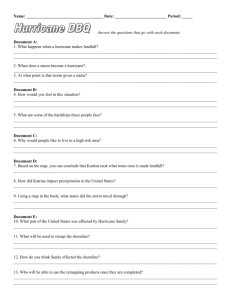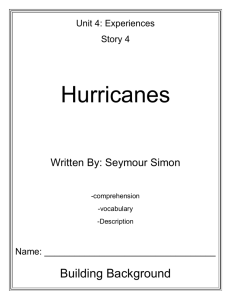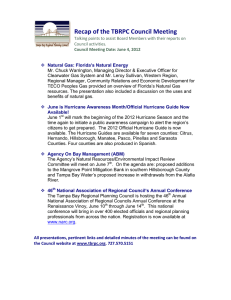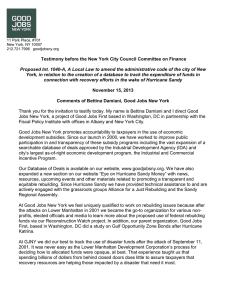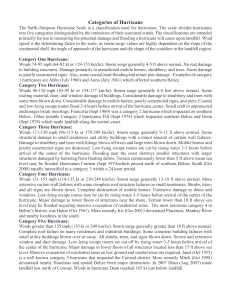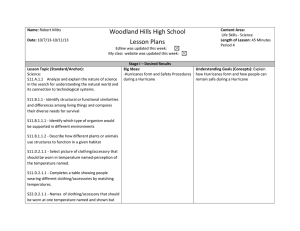Centennial Honors College Western Illinois University Undergraduate Research Day 2014
advertisement
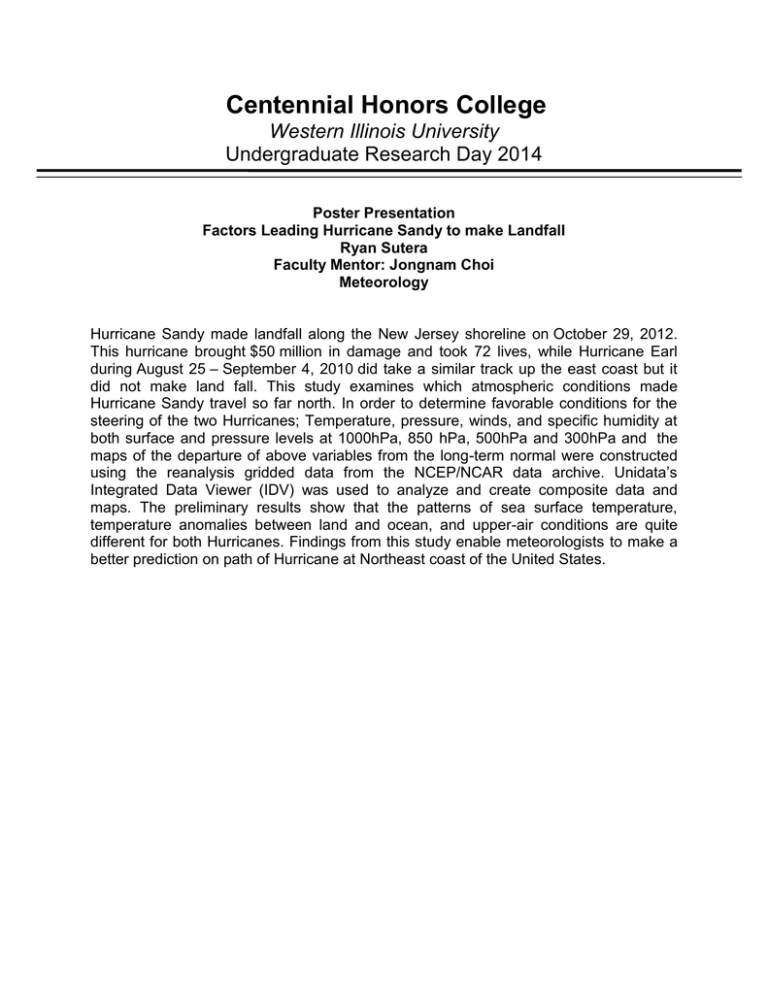
Centennial Honors College Western Illinois University Undergraduate Research Day 2014 Poster Presentation Factors Leading Hurricane Sandy to make Landfall Ryan Sutera Faculty Mentor: Jongnam Choi Meteorology Hurricane Sandy made landfall along the New Jersey shoreline on October 29, 2012. This hurricane brought $50 million in damage and took 72 lives, while Hurricane Earl during August 25 – September 4, 2010 did take a similar track up the east coast but it did not make land fall. This study examines which atmospheric conditions made Hurricane Sandy travel so far north. In order to determine favorable conditions for the steering of the two Hurricanes; Temperature, pressure, winds, and specific humidity at both surface and pressure levels at 1000hPa, 850 hPa, 500hPa and 300hPa and the maps of the departure of above variables from the long-term normal were constructed using the reanalysis gridded data from the NCEP/NCAR data archive. Unidata’s Integrated Data Viewer (IDV) was used to analyze and create composite data and maps. The preliminary results show that the patterns of sea surface temperature, temperature anomalies between land and ocean, and upper-air conditions are quite different for both Hurricanes. Findings from this study enable meteorologists to make a better prediction on path of Hurricane at Northeast coast of the United States.
